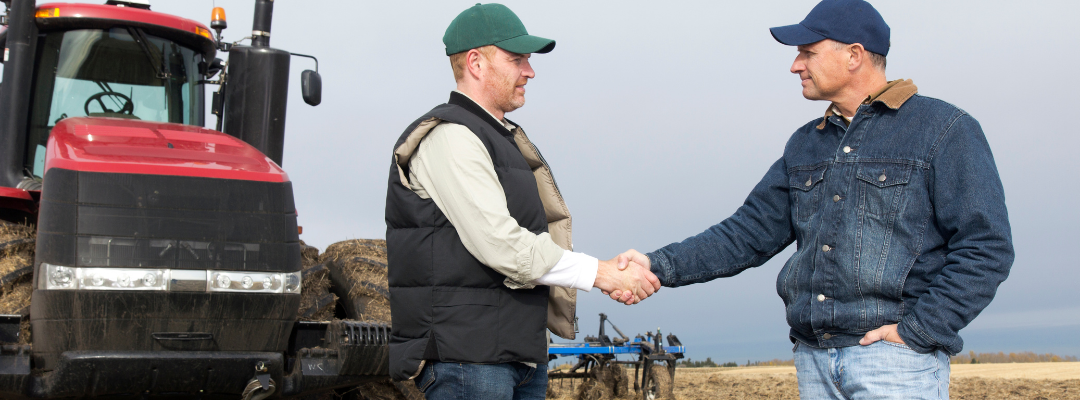When one inherits or purchases an interest in open farmland – particularly between March and November in the South – chances are someone is growing crops or pasturing livestock on it. Often, there is no written agreement between landowner and farmer. Statistically we know that the majority of farm tenancies renew annually (ERS, 2016), which may support anecdotal observations that verbal farm tenancies are common. Such “handshake” agreements provide no written record of the bargain struck between landowner and farmer as to rent and term. For farmers working multiple parcels with different owners, keeping the bargains straight may pose a challenge. As land changes hands between owners due to inheritance or sale, questions emerge including the farmer’s rights to crops and fixtures, the apportionment of rent between successive owners, and circumstances of renewal.
Given the relative vulnerability of the farmer in this equation, states’ landlord-tenant policies have evolved to provide farmer access rights through the harvesting and sale of their crop and its profits – known as emblements – in the event a landowner or successor tries to move them off and bar access. All southern states have some form of farm tenancy laws, varying in their specificity and determination of tenant rights. Such statutes may supply length of term (e.g. South Carolina) and prescribe termination notice periods required to prevent automatic renewals, often of one month or greater (e.g. Mississippi). Some laws allow a landowner to terminate a tenancy before planting, as in Alabama. The status of improvements – called trade fixtures – placed by the farmer can also come into question, and Georgiaprovides that any items on the parcel at the close of term become property of the landowner. Most such laws ensure payment of rent with a priority lien on crops in favor of the landowner. At the moment, there is no comprehensive source locating and describing farm tenancy laws for the southern states, however, this article serves as a summary of issues such laws might address, using North Carolina as an example. To locate your state’s farm tenancy law, try the search terms “farm” or “agriculture”, “tenant” or “tenancy”, and “[state] Code.”
Regardless of statutory protections, farm tenancy disputes require verbal sworn testimony in court to resolve, and otherwise require judicial interpretation of vague statutory language, so resolving disputes can be costly. Better practice dictates some form of writing to clarify the issues described above. Though farm leases can be a lengthy treatment of rights and responsibilities, or very short statement of place, rent and term, they serve as the clarifying record of the bargain which likely reduces disputes and expense to both landlords and farm tenants.
Brannon, Robert Andrew. “Verbal Farm Tenancy Protections in the South“. Southern Ag Today 2(23.5). June 3, 2022. Permalink

